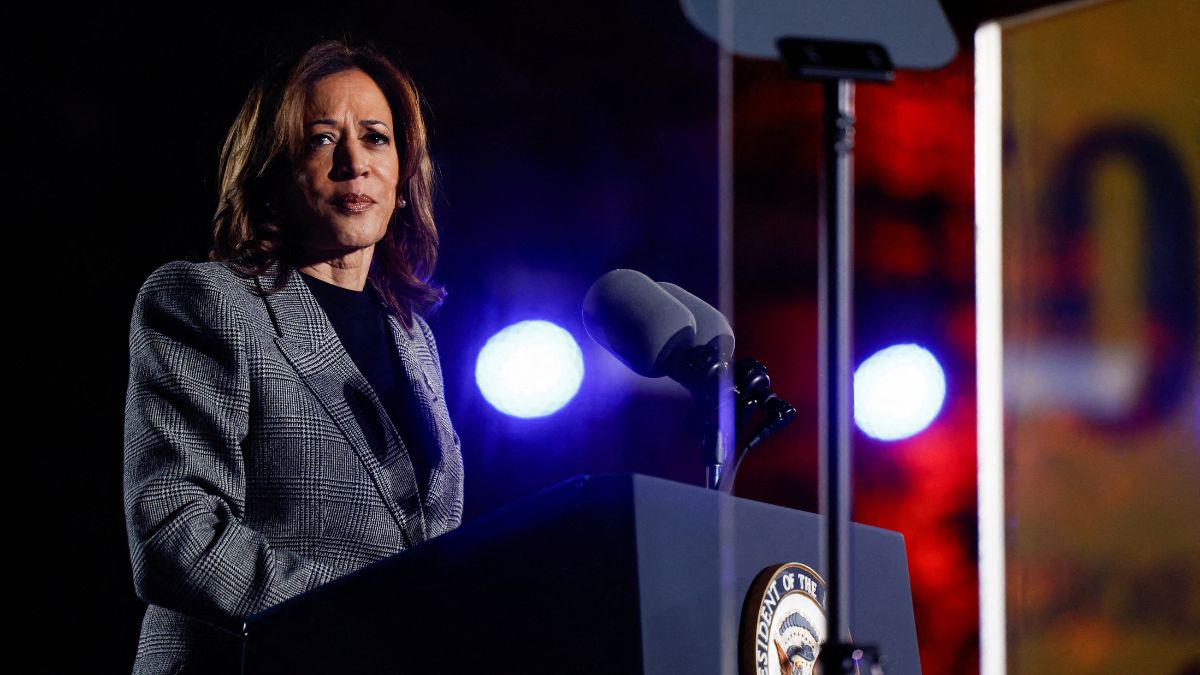Democratic candidate Vice President Kamala Harris has won the state of Maryland, according to CNN and AP.
Harris has won Maryland’s 10 electoral college votes in the race to reach the 270-mark.
President Joe Biden won Vermont in 2020 election as well.
Catch all updates on the US election results in live coverage here
Maryland has participated in all 59 presidential elections since joining the Union in April 1788. Maryland earned its nickname as a “blue” state because it has historically been a Democratic stronghold, especially since the Civil War era when modern political parties were formed.
With a strong urban-suburban foundation and a diversified voter base, Maryland has strengthened its Democratic identity in recent decades, making it challenging for Republicans to compete. Notably, the state-supported Richard Nixon in 1972, Ronald Reagan in 1984, and George H.W. Bush in 1988 with resounding victories. But Joe Biden won the state comfortably in the 2020 presidential contest, taking 65% of the vote to Donald Trump’s 32%. The state’s electoral votes have been reliably blue for several years Maryland is likely to remain a key battleground state in the upcoming election.
Voter demographics: Maryland’s electorate comprises a mix of suburban, urban, and rural voters. The state’s population is centered around the Baltimore-Washington corridor, which is considered home to a large African-American community. Suburban areas such as Montgomery and Howard counties also lean heavily Democratic. Maryland’s population is approximately 60% White, 31% Black or African American, 11% Hispanic or Latino, and 7% Asian.
In 2020, Joe Biden won 52% of the White vote, marking a rare majority for a Democratic presidential candidate among this demographic since Lyndon B. Johnson’s 1964 campaign.
Impact Shorts
More ShortsVoting history: Historically, Black voters have been a strong Democratic base, while White voters are more divided, with a substantial portion in rural areas supporting Republicans. Maryland has consistently supported Democratic candidates in presidential elections, solidifying its status as a “blue” state.
Since 1960, the state has voted Republican only in three landslide elections: Richard Nixon in 1972, Ronald Reagan in 1984, and George H. W. Bush in 1988. In 2020, Biden decisively defeated Donald Trump, securing 65.4% of the vote to Trump’s 32.2%. This overwhelming Democratic support is typical of Maryland, where urban and suburban voters dominate the electorate. Biden’s performance was the strongest in Maryland since Horatio Seymour’s 67.2% in 1868.
Swing state status and electoral importance: Maryland is not considered a swing state and has not been competitive in recent presidential elections. With 10 electoral votes, the state is securely Democratic, often contributing significantly to the party’s electoral vote total.
While Republicans typically carry more rural counties in Western Maryland and the Eastern Shore, the densely populated Baltimore-Washington region accounts for most of the state’s votes. As a result, Maryland’s electoral importance lies more in its reliable contribution to Democratic presidential candidates rather than its competitiveness.
Presidential connections: Though Maryland has not produced a U.S. president, it has been the home of influential political figures. Spiro T. Agnew, who served as vice president under Richard Nixon, hailed from Maryland, having previously been governor of the state. Joe Biden, a native of neighbouring Delaware, has longstanding ties to Maryland, which likely contributed to his strong showing in the state during the 2020 election. Additionally, Vice President Kamala Harris, who became the Democratic presidential nominee in 2024, has received strong support from Maryland voters.
Memorable elections: Biden’s win in 2020 was notable not only for the size of his victory but also for the historical context—Trump’s 32.2% share of the vote was the worst showing for a Republican candidate in Maryland since 1912, when the party split due to Theodore Roosevelt’s third-party candidacy. Another memorable election occurred in 1988, when George H. W. Bush became the last Republican to carry Maryland, reflecting a different era in the state’s political alignment.


)

)
)
)
)
)
)
)
)



